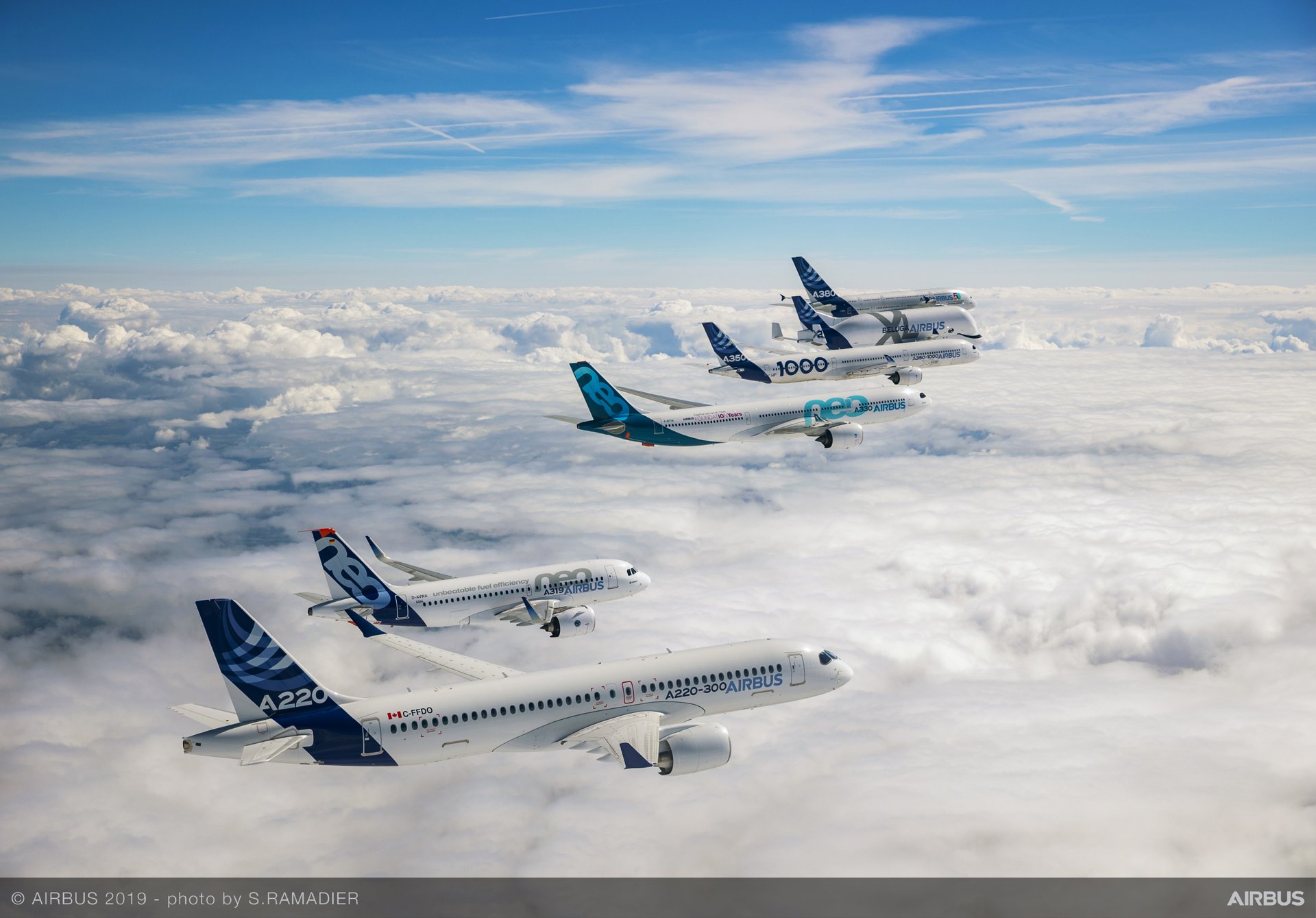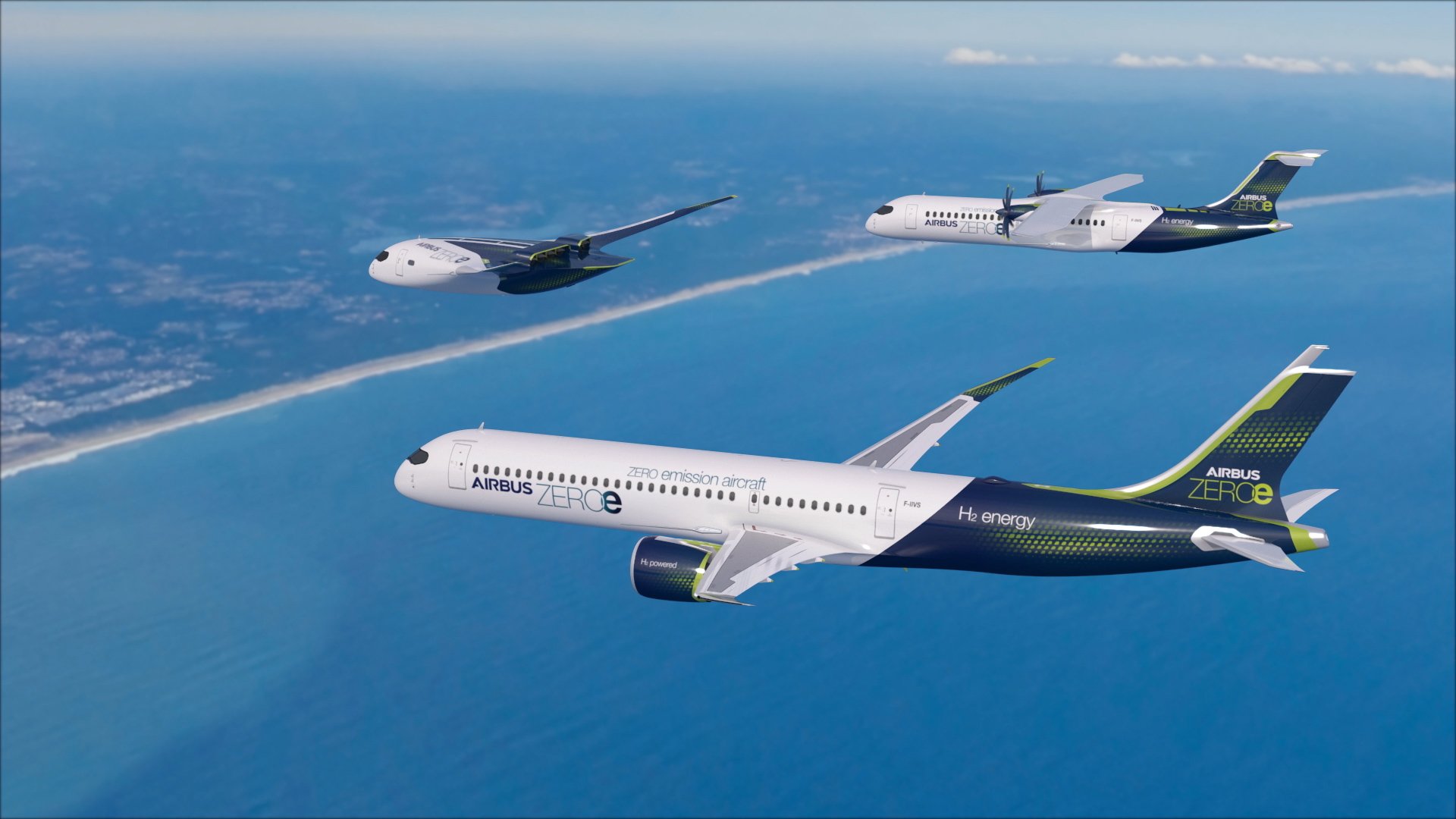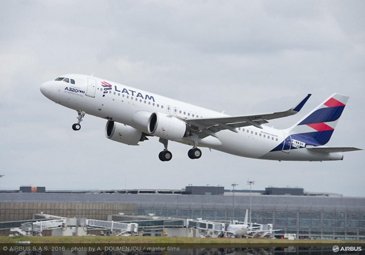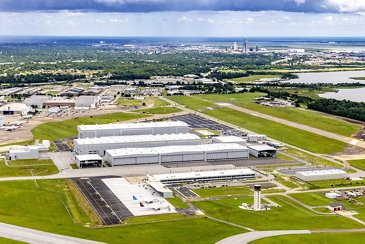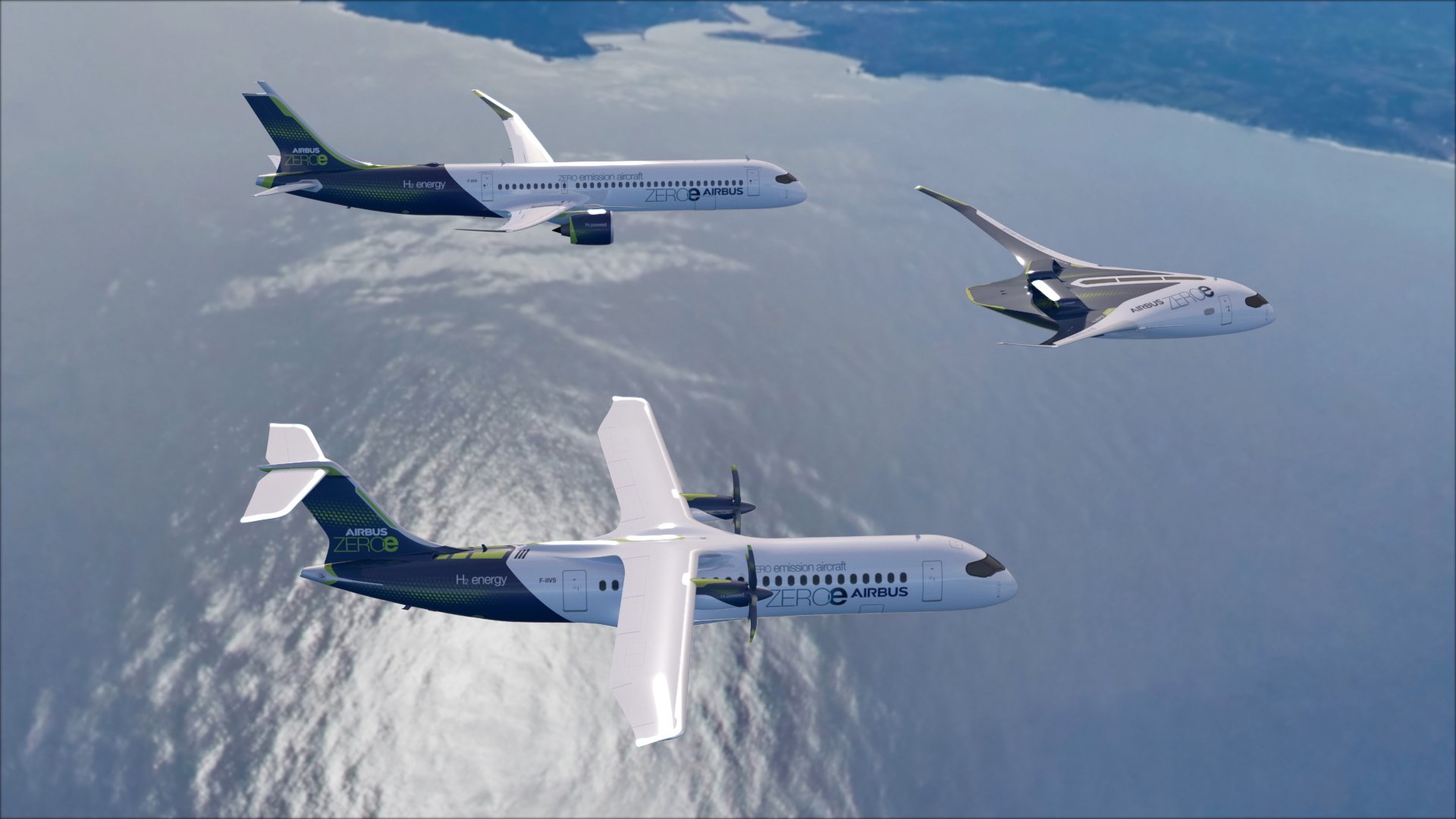
Decarbonisation
Towards more sustainable aerospace for future generations
Aviation has given us the possibility to explore all four corners of our planet. To connect with friends and to meet new ones—anywhere. To feel the thrill of seeing our world from 30,000 feet above.
Today, we know our love of air travel also comes at a cost: the aviation industry represents approximately 2.5% of global human-induced CO2 emissions. But aviation is not the problem. Emissions are the problem.
At Airbus, we are committed to leading the decarbonisation of the aerospace sector. This includes reducing the CO2 emissions of our aircraft, helicopters, satellites and launch vehicles, as well as our industrial environmental footprint at sites worldwide and throughout our supply chain. To this end, we are contributing to meet key industry-wide environmental performance targets. We are also focused on delivering on our ambition to bring the world’s first zero-emission commercial aircraft to market by 2035. Our approach is not only ambitious, but rather, a seismic shift for our industry.
As we work to achieve our ambition, we are also continuously enhancing our company-wide product and services portfolio to contribute positively to climate change mitigation and adaptation.
Airbus aligns with global and binding offsetting programmes, in addition to other market-based measures, to help cap the aviation industry’s CO2 emissions. We support ICAO as the right body to implement global market-based measures for the aviation industry.
The aviation industry, including Airbus, has committed to an industry-wide decarbonisation movement that includes the following key targets:
- Carbon-neutral growth: From 2020, net carbon emissions from aviation will be capped. This means that even though air travel is increasing, greenhouse gas emissions will not.
- 50% reduction in CO2 emissions: By 2050, net aviation carbon emissions will be half of 2005 levels.
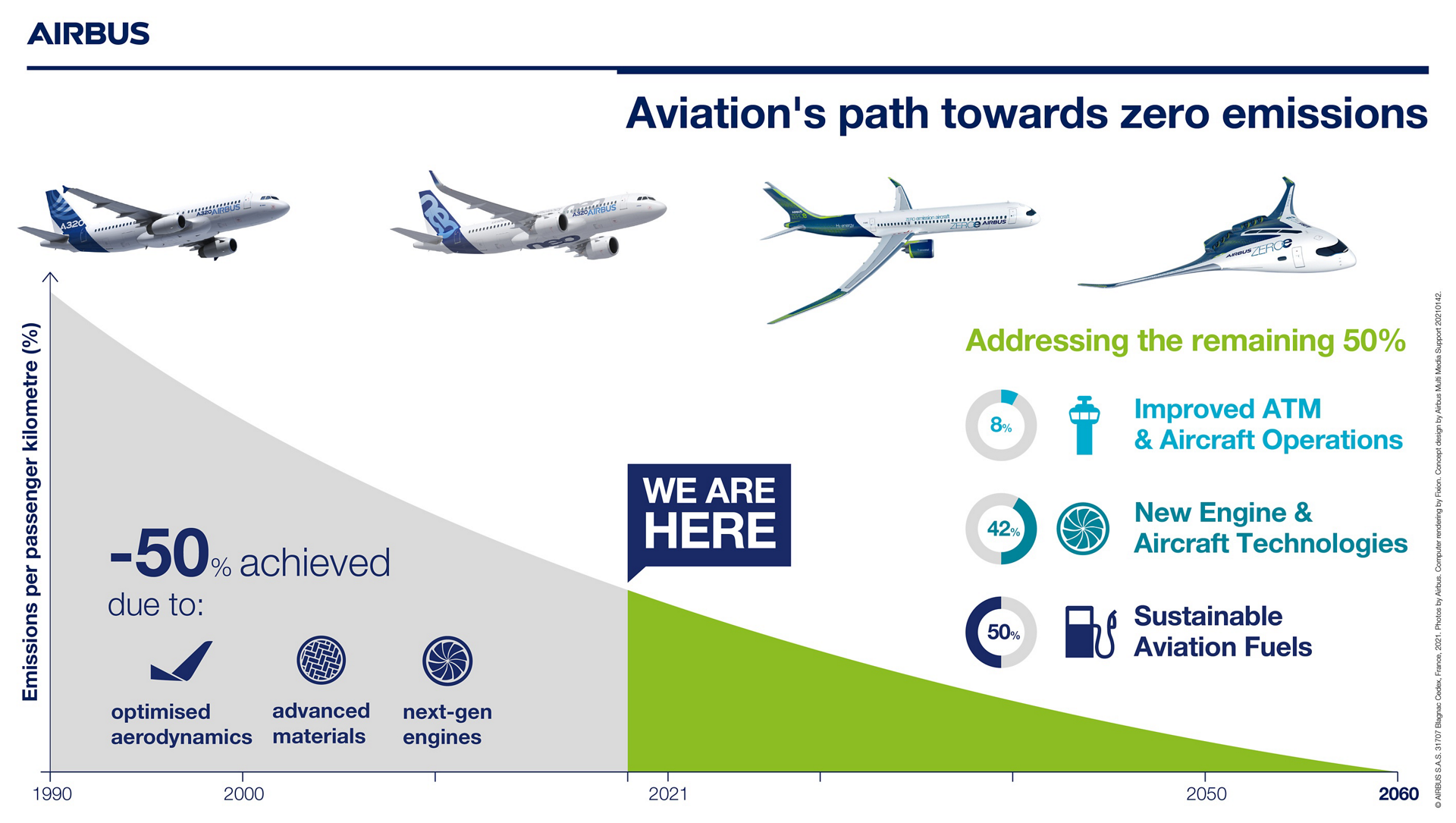
To achieve these ambitious targets, we fully understand that we cannot move forward alone. This is why we align our climate action plan to a variety of industry-wide environmental principles and targets driven by organisations in which Airbus plays a leading role.
- ATAG: The Air Transport Action Group is a global independent body that brings together the entire aviation industry to promote sustainable growth that benefits society.
- Clean Sky: This public-private partnership between the European Commission and the European aeronautics industry aims to develop innovative technology aimed at reducing CO2 and gas emissions, as well as noise levels produced by aircraft.
- CORSIA: This UN-backed programme aims to ensure a rise in international aviation emissions (above 2020 levels) is offset elsewhere.
- IAEG: The International Aerospace Environmental Group promotes global standards for greenhouse gas emissions reporting, substances management and substitution technologies. We are a founding member of IAEG.
- ITAKA: We played a leading role in the ICAO-sponsored and European Commission-funded research project—Initiative Towards Sustainable Kerosene for Aviation (ITAKA)—which aimed to speed up the commercialisation of fossil-free biofuels.
- Hydrogen Council: This global initiative brings together energy, transport and industry companies to deliver a united vision and long-term ambition for hydrogen in fostering the energy transition. We are currently a member of the Hydrogen Council to benefit from the huge cross-industry experience on hydrogen.
- SESAR: The Single European Sky Air Traffic Management Research initiative aims to shape the future of air transportation and drive sustainable growth around the world by developing solutions for air traffic management.

